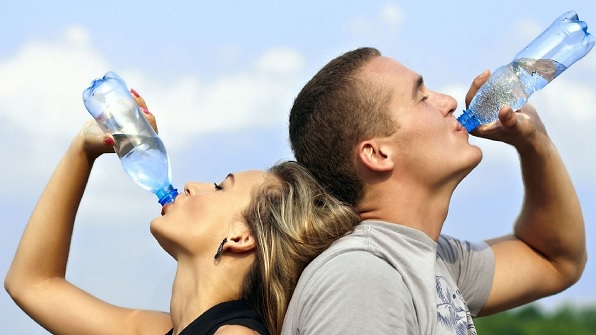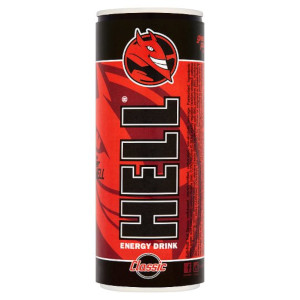I’ve only tasted one of those high-Caffeine ‘Energy’ Drinks, and only once. It did nothing for me, but I only had a mouthful. And, flavour-wise, it was a disappointment. Frankly, I’m a little afraid of those beverages, which deliver a lot of Caffeine but don’t really deliver any extra energy…
 An active lifestyle and a healthy diet are the best way to increase your
An active lifestyle and a healthy diet are the best way to increase your
energy level. Energy Drinks full of Caffeine are just ‘false energy’.
Setting aside, for the moment, the fact that the collective name for these drinks is clearly misleading, I worry about people who use them becoming addicted to Caffeine, and suffering all the woes that addiction carries with it. A old adage describes Alcohol as ‘false courage’. Energy Drinks are nothing more than ‘false energy’.
New study opens eyes
A new study of Energy Drink consumption from the Harvard T.H. Chan School of Public Health suggests that consumption is increasing substantially, especially among younger people.
What they did
Researchers data-mined the results of the from the National Health and Nutrition Examination Survey (NHANES), “a repeated cross-sectional study that is representative of the American non-institutionalized population.” They were looking for trends in Energy Drink use by age category, sex, race/ethnicity and educational attainment), and compared total caffeine intake between energy drink consumers and non-consumers. And they uncovered some remarkable facts.
What they found
The short answer is, researchers discovered that Energy Drink use was up sharply over the past decade among three age groups: for adolescents (0.2 percent to 1.4 percent); young adults (0.5 percent to 5.5 percent); and middle-aged adults (0.0 percent to 1.2 percent).
The takeaway
Researchers say that, among Energy Drink users, the percentage of their daily Caffeine intake coming from the beverages went from a minority to a majority.
“The increasing use of energy drinks, especially among young adults, is cause for concern and warrants continued study and surveillance,” explained Study Senior Author Dr. Sara Bleich of the Department of Health Policy and Management, Harvard T.H. Chan School of Public Health. “Although the beverages are marketed to reduce fatigue and improve physical and mental performance, frequent consumption of these highly caffeinated and sugary beverages has been linked to negative health consequences.”
My take
The study also found that the highest increases in Energy Drink consumption occurred among low-income, low education young people. That may signal a need for increased public education about the dangers of Caffeine use. It may also mean we should be considering stronger labelling and advertising regulations on Energy Drinks. My concern is that some people still don’t realize Caffeine is not a substitute for a healthy diet and lifestyle. If you want energy, you have to work for it.
~ Maggie J.

